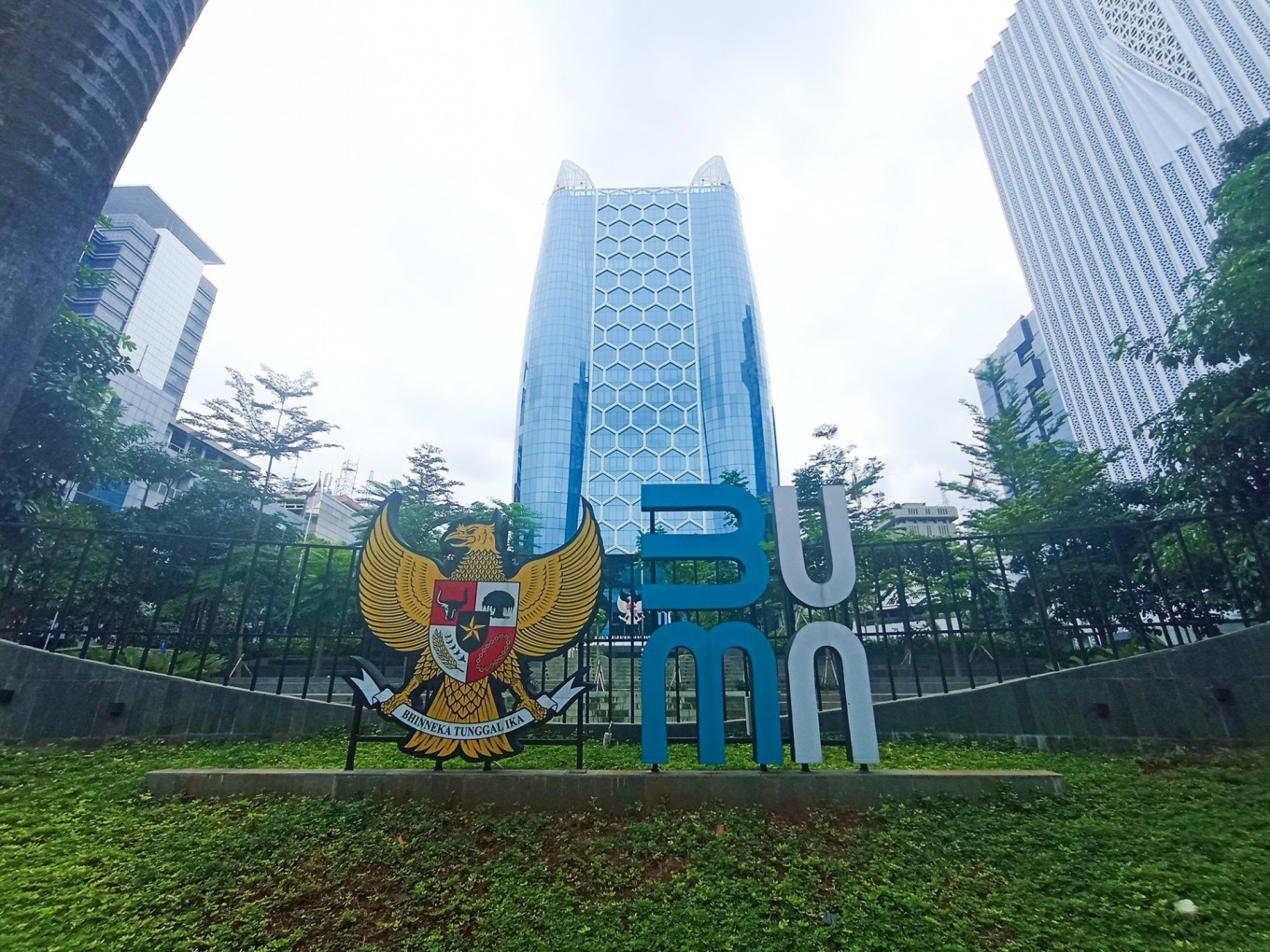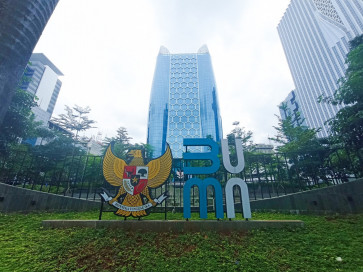Popular Reads
Top Results
Can't find what you're looking for?
View all search resultsPopular Reads
Top Results
Can't find what you're looking for?
View all search resultsAnalysis: RI revises SOE Law, transforming ministry into regulatory agency
Change text size
Gift Premium Articles
to Anyone
I
ndonesia has again amended Law No. 1/2003 on State-Owned Enterprises (SOEs), formally transforming the SOEs Ministry into the SOEs Regulatory Agency (BP BUMN). The amendment marks a significant shift in governance, transferring the ministry’s operational authority to the Daya Anagata Nusantara (Danantara) Investment Management Agency, while BP BUMN will retain a purely regulatory role. In effect, the change consolidates Danantara’s control over the management of SOEs, as its Chief Operating Officer, Dony Oskaria, has been appointed to concurrently lead BP BUMN, aligning the two institutions’ operational and oversight functions.
The House of Representatives passed the fourth revision of the SOE Law during its plenary session on Oct. 2, marking the second amendment this year alone. The new law introduces a broad restructuring of the SOE governance framework. It redefines the institutional landscape by converting the former ministry into a regulatory body and confirming the state’s 1 percent ownership of Series A Dwiwarna shares in the new agency. It also restructures the composition of SOE share ownership designated to PT Danantara Investment Management (DIM) as the investment holding company and PT Danantara Asset Management (DAM) as the operational holding company under BPI Danantara.
In addition, the law strengthens governance by barring ministers and deputy ministers from holding concurrent positions as SOE directors, commissioners, or supervisory board members, implementing a Constitutional Court ruling issued in August 2025, which mandates enforcement within two years of the verdict. It also removes the previous exemption that allowed SOE directors and commissioners to be excluded from the definition of state officials, reinforcing accountability standards. To further professionalize oversight, members of the boards of commissioners of both DAM and DIM are now required to come from professional rather than political backgrounds, a move seen as a response to persistent criticism of political appointments in SOEs. According to Transparency International Indonesia, nearly half (48.6 percent) of SOE commissioners have ties to the ruling Gerindra Party.
The revision also expands the mandate of the Supreme Audit Agency (BPK) as the primary financial auditor of SOEs to strengthen transparency and accountability. Meanwhile, BP BUMN’s authority is broadened to enhance the strategic role of SOEs in the national economy. The law emphasizes gender equality in SOE leadership and managerial positions, mandates fair taxation treatment for transactions involving BP BUMN, Danantara, and their subsidiaries, and exempts SOEs designated as fiscal instruments from BP BUMN’s oversight. It also regulates the transition of personnel from the former ministry to the new agency and establishes the supporting administrative framework for BP BUMN’s operation.
House Commission VI Deputy Chair Andre Rosiade said that BP BUMN’s authority would remain largely similar to that of its predecessor, but oversight of SOEs would now fall under Danantara’s supervisory board, where BP BUMN holds membership. Notably, the new law grants BP BUMN the power to approve Danantara’s work and budget plans, a responsibility that previously belonged to the Danantara’s supervisory board with the approval of the president. This effectively gives BP BUMN a degree of influence over Danantara’s operational decisions, despite its designation as a regulatory body.
President Prabowo Subianto on Oct. 8 appointed Dony Oskaria as the inaugural head of BP BUMN, alongside Aminuddin Ma’ruf and Tedi Bharata as his deputies. The appointment drew support from Investment and Downstream Minister Rosan Perkasa Roeslani, who is also Danantara’s Chief Executive Officer. Rosan said Dony’s dual role would enhance coordination between the regulator and operator, ensuring alignment in SOE governance.
However, while the reform is officially intended to clarify the division of regulatory and operational authority, it may instead blur institutional boundaries. BP BUMN’s power to approve Danantara’s budget and work plans opens the door for potential interference in day-to-day operations. Dony’s concurrent positions as BP BUMN head, Danantara COO, and DAM president director further complicate the separation of powers. Rather than creating clear lines of accountability, the arrangement risks overlapping authority and weakening the independence of oversight, potentially undermining the broader goal of SOE reform.



















